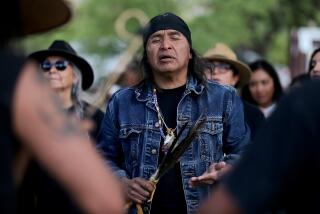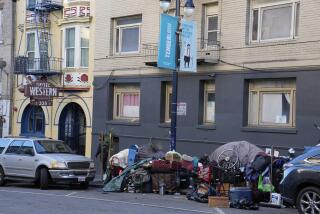4 Judges Decry State’s Refusal of Killer’s Final Request
- Share via
In a bitingly worded dissent, four federal appeals court judges Friday decried the state’s refusal to allow convicted killer Darrell Keith Rich to participate in a Native American sweat lodge ceremony before his execution last month.
Rich’s lawyers were turned down by the U.S. 9th Circuit Court of Appeals in San Francisco and the U.S. Supreme Court in their last-minute attempts to force San Quentin prison officials to let their client take part in the purification ritual before he was put to death by lethal injection March 15.
In a dissent released Friday, 9th Circuit Justices Stephen Reinhardt, Alex Kozinski, Harry Pregerson and Kim Wardlaw disagreed with the majority’s refusal to review the matter.
“Because I believe that neither the Constitution nor human decency permits us to deny a condemned man his last rites based on the implausible security concerns advanced by the state, I dissent from the refusal to rehear this case en banc,” Reinhardt wrote.
Rich, who was part Cherokee but had been adopted by a non-Indian family shortly after birth, embraced his Native American heritage during his nearly 20-year stay on death row. He wore a medicine bag, consulted with Native American spiritual advisors and, as his execution date approached, asked that he be allowed to spiritually cleanse himself in the sweat lodge ritual.
San Quentin officials denied the request, saying it would have presented a security risk to let Rich leave death row to go to the prison sweat lodge. Rich’s attorneys sued, saying he was being deprived of his constitutional rights.
The dissent rejects the security contention and criticizes the state attorney general’s office.
“Indeed, the arguments contrived by the attorney general to defeat Rich’s request cast doubt on the professional candor of the lawyers who presented them,” wrote Kozinski.
“This office takes very seriously its responsibility to honestly and truthfully advocate its position before the court,” attorney general spokesman Nathan Barankin replied Friday.
More to Read
Sign up for Essential California
The most important California stories and recommendations in your inbox every morning.
You may occasionally receive promotional content from the Los Angeles Times.














